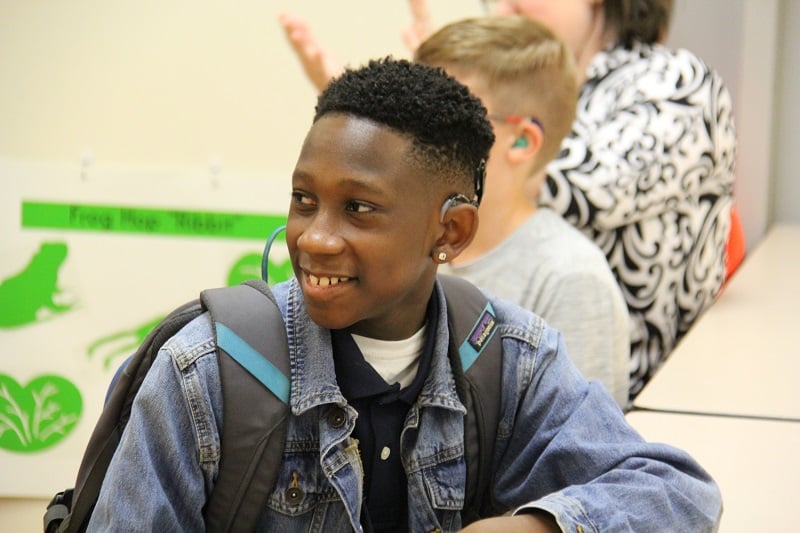Thanks to today’s advances in hearing technology for infants and young children and an early diagnosis and support from qualified professionals, families are more confident than ever that their child who is deaf or hard of hearing can develop listening and spoken language.
Early identification and intervention combined with appropriate hearing technology can enable a child with hearing loss to develop language skills comparable to their peers with typical hearing by the time they enter first grade.
Historically, Listening and Spoken Language (LSL) approaches have been the auditory-verbal approach (A-V) and the auditory-oral approach (A-O). Families who choose a Listening and Spoken Language outcome for their child should seek out a teacher of the deaf, a speech-language pathologist, or an audiologist who is specially trained to help them help their child develop Listening and Spoken Language. The expert team at DePaul is uniquely qualified to teach kids who are deaf or hard of hearing to speak and listen.
The goal of an LSL education is for the child to transition and succeed in a neighborhood school setting. With early access to sound using cochlear implants or hearing aids and intensive LSL education, children who are deaf or hard of hearing learn to listen and speak and compete academically with their peers with typical hearing.

The following are important factors that support LSL*
Early identification of the child’s type and degree of hearing loss.
Access to sound using cochlear implants or digital hearing aids.
Wearing hearing aids or cochlear implants during all waking hours.
Enrollment in early intervention programs specializing in facilitating LSL in infants and young children, such as DePaul School.
Guiding parents and caretakers to provide children with optimal hearing, speech and language stimulation.
To learn more about our LSL approach or see our educators in action, contact us or schedule a tour.
*Visit the AG Bell Association’s resource center for additional resources and information about LSL.
Hearing and Speaking Videos



